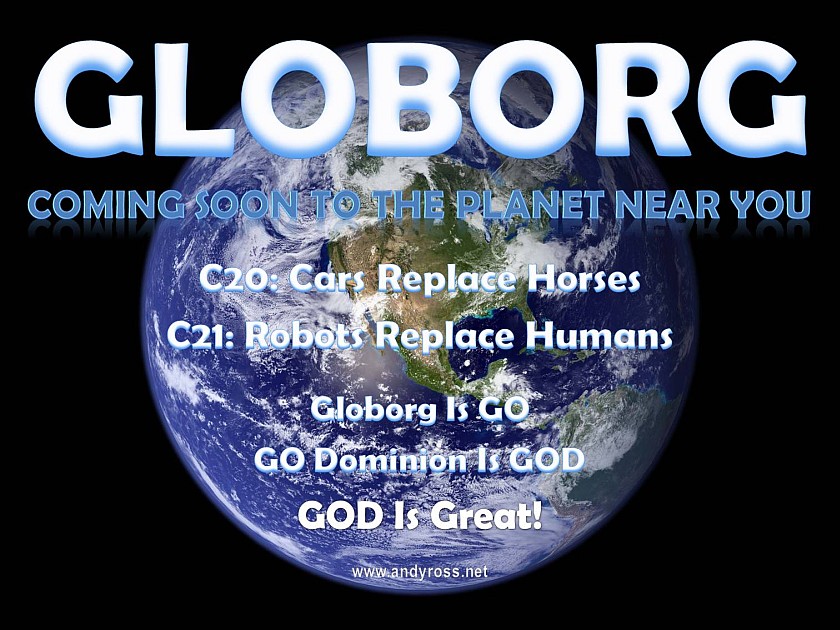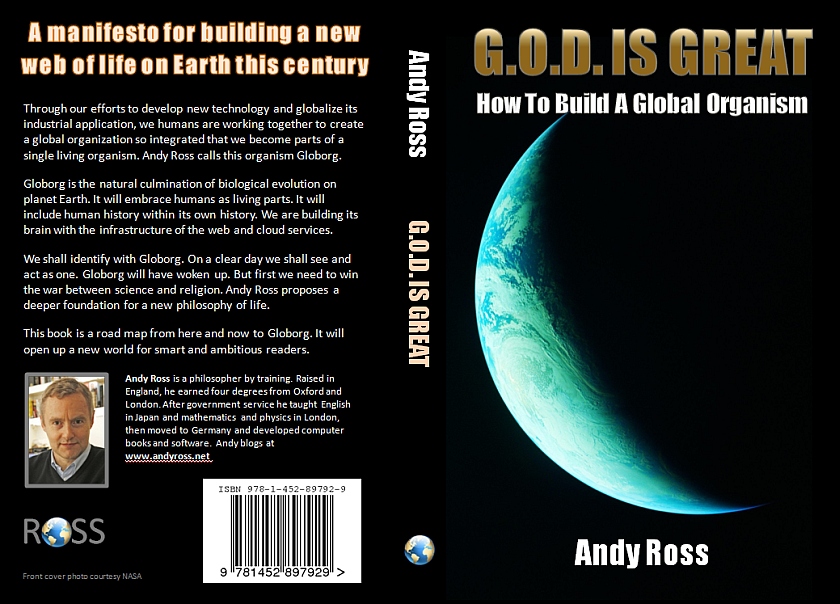
Click image to download introductory presentation about the book (PDF, 38 pages, 2.3 MB)

G.O.D. Is Great
By Andy Ross
Paperback 12.9 x 19.8 cm
300 pages, 2010
ISBN 978 145289792 9
Through our efforts to develop new technology and globalize its industrial application, we humans are working together to create a global organization so integrated that we become parts of a single living organism. Andy Ross calls this organism Globorg.
Globorg is the natural culmination of biological evolution on planet Earth. It will embrace humans as living parts. It will include human history within its own history. We are building its brain with the infrastructure of the web and cloud services.
We shall identify with Globorg. On a clear day we shall see and act as one. Globorg will have woken up. But first we need to win the war between science and religion. Andy Ross proposes a deeper foundation for a new philosophy of life.
This book is a road map from here and now to Globorg. It will open up a new world for smart and ambitious readers.
Andy Ross is a philosopher by training. Raised in England, he earned four degrees from Oxford and London. After government service he taught English in Japan and mathematics and physics in London, then moved to Germany and developed computer books and software.
PowerPoint show (full screen, 90 slides, 6.4 MB)
Clickthru version (PDF, 90 slides, 2.6 MB)